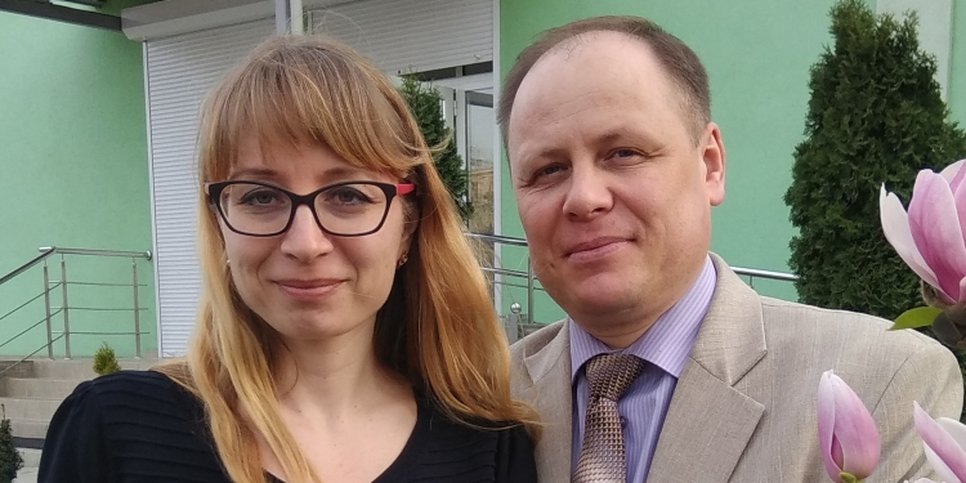Anna and Aleksandr Solovyov before the start of criminal prosecution
Anna and Aleksandr Solovyov before the start of criminal prosecution
The prosecutor's office in Perm signed an indictment against Alexander Solovyov
Perm TerritoryOn May 6, 2019, Aleksandr Deryshov, deputy prosecutor of the Perm region, signed the final document in which investigators summarized the charge against 48-year-old Perm resident Alexander Solovyov, suspected of practicing the religion of Jehovah's Witnesses. The case goes to court (see chronology of the case).
What exactly is Alexander Solovyov accused of? He is charged with participating in the activities of an organization banned by the court, citing the decision of the Supreme Court of the Russian Federation to liquidate all 396 registered organizations of Jehovah's Witnesses. In 2017, a small group of Perm residents who in the past professed the religion of Jehovah's Witnesses, on the instructions of the "E" center, having received hidden recording equipment from operatives, began to hold discussions with Solovyov about the Bible. Police Lieutenant Colonel K. Ulitin sent the recordings of these discussions for examination to the catechist of the Russian Orthodox Church, a graduate of the Perm Theological Seminary, Alexei Mosin. The expert found in Solovyov's words signs of psychological pressure on the interlocutor, which, in turn, according to prosecutors, serves as confirmation that Solovyov continued the activities of the banned organization. He was charged under Part 2 of Article 282.2 of the Criminal Code of the Russian Federation. There are no victims in the criminal case.
What is the position of the accused? According to the indictment, Alexander Solovyov does not agree with the charges, does not admit guilt, claims that he did nothing wrong, and does not understand why he is being held accountable. Refers to Article 28 of the Constitution of the Russian Federation, which gives the right to practice any religion personally or jointly with others. He believes that the Bible taught him self-control, helped him give up bad habits, and its study also led to other positive aspects. In addition, Alexander Solovyov did not want to explain anything, deciding to wait for the trial.
Law enforcers mistakenly mistake citizens' religion for participation in the activities of an extremist organization. Prominent public figures of Russia, the Human Rights Council under the President of the Russian Federation, the President of the Russian Federation, as well as international organizations - the European Union External Action Service, observers of the Parliamentary Assembly of the Council of Europe, the Office of the UN High Commissioner for Human Rights - drew attention to this problem. Jehovah's Witnesses have nothing to do with extremism and insist on their complete innocence. The Russian government has repeatedly stated that the decisions of the Russian courts on the liquidation and prohibition of organizations of Jehovah's Witnesses "do not assess the doctrine of Jehovah's Witnesses, do not contain a restriction or prohibition to practice the above teachings individually."

